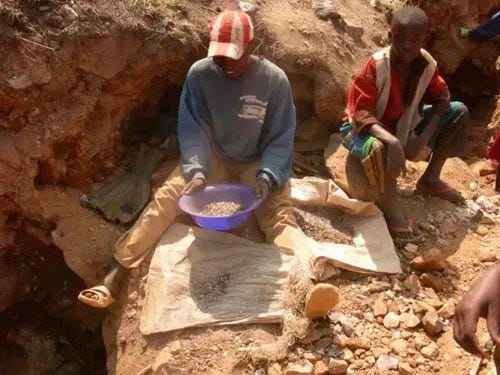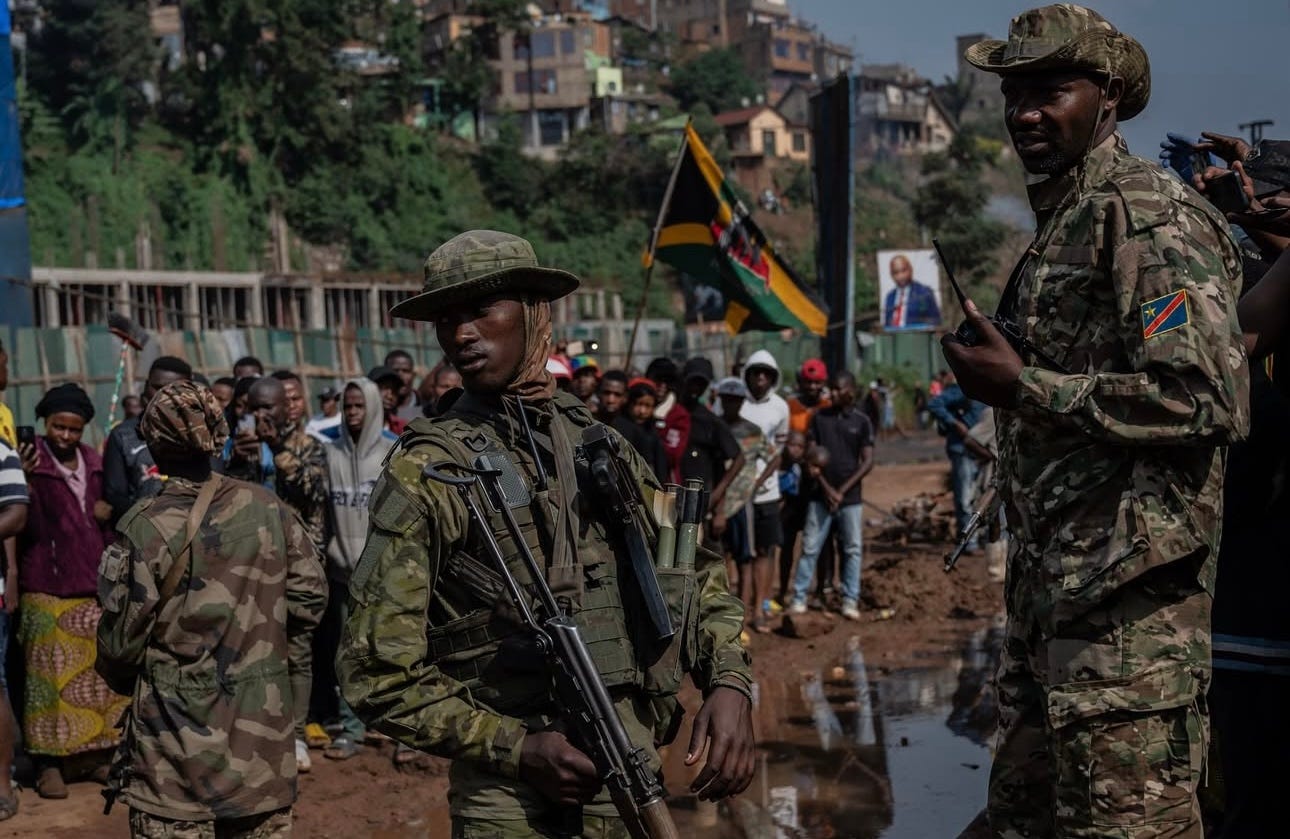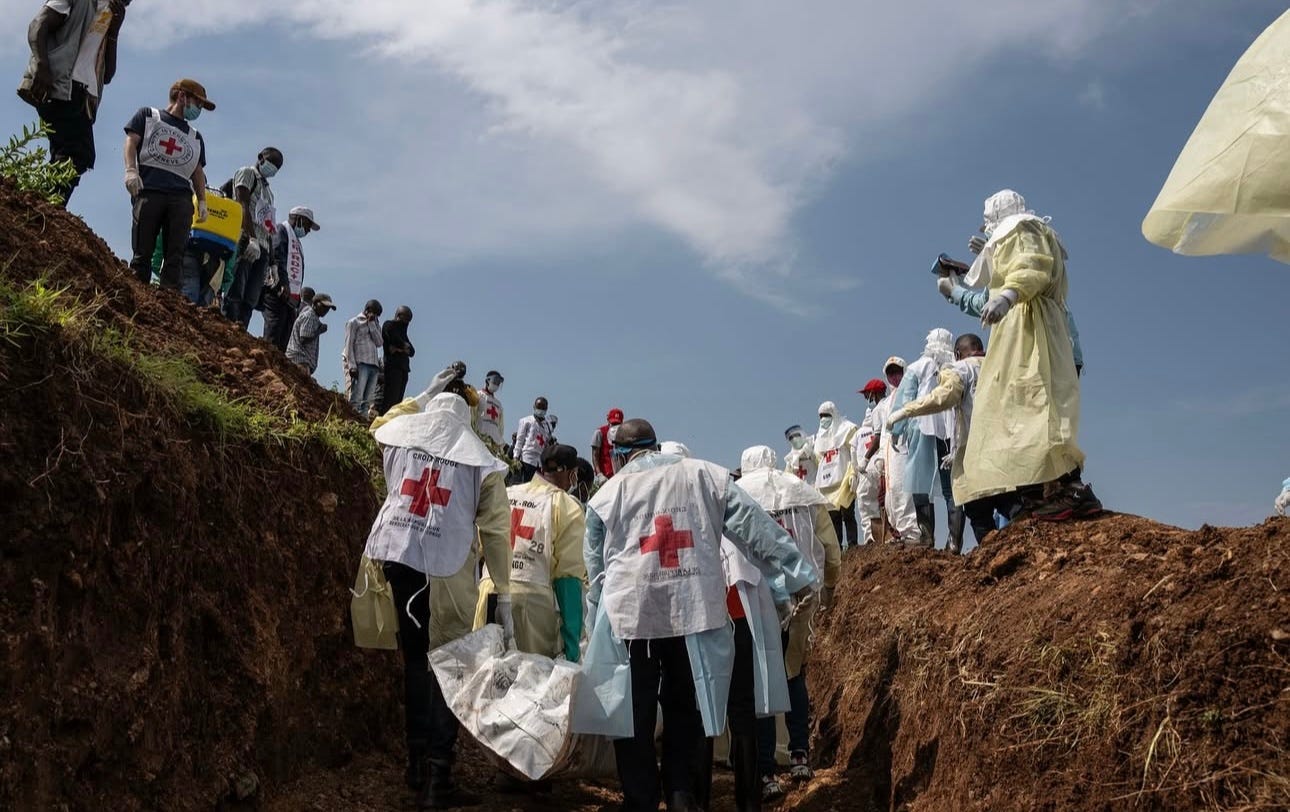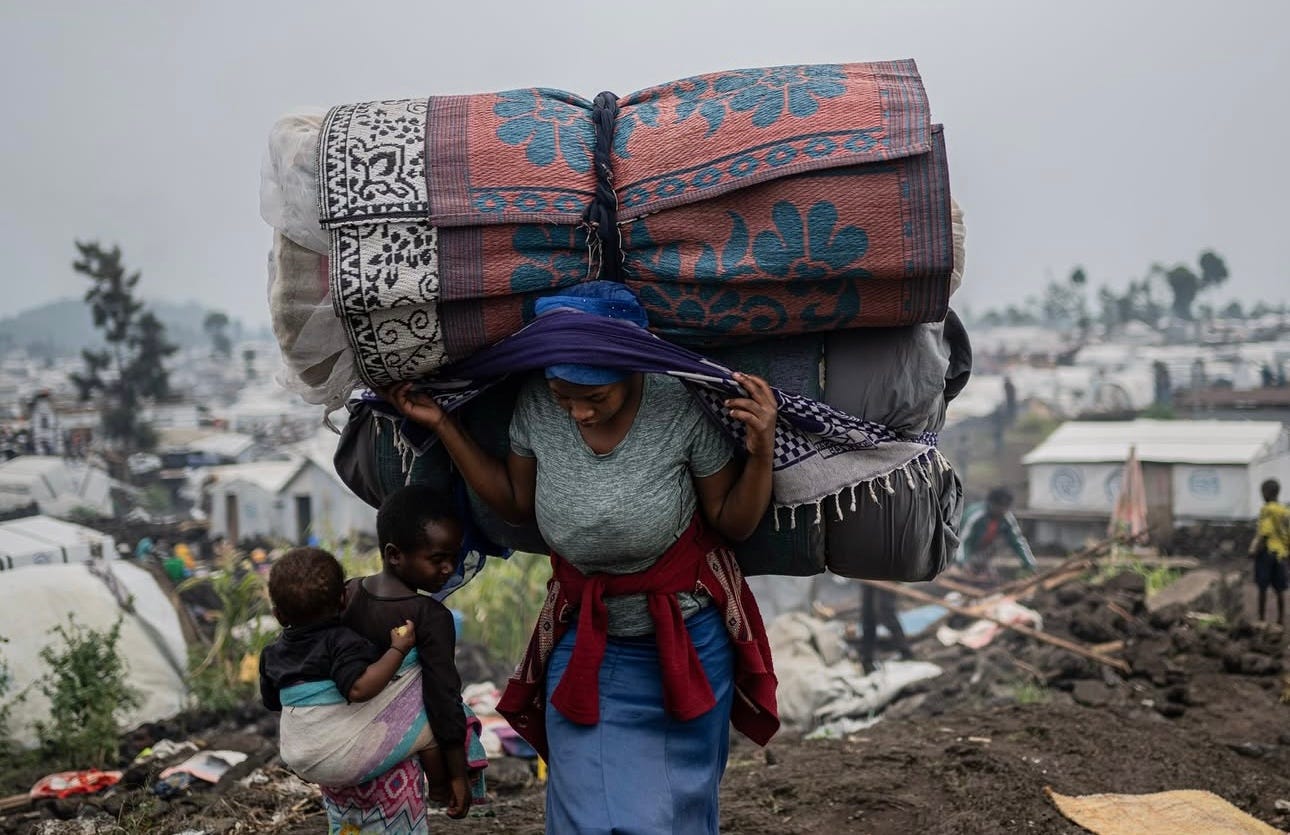There’s a war raging in DRC. This is why you must care
A bloody conflict in central Africa matters to us more than we think
The conflict in the Democratic Republic of Congo (DRC) has flashed across news headlines and popped up in social media feeds. But why? According to Bukavu-born Congolese activist Nils Kinuani, “If you care about humanity, then the DRC conflict should also be given attention.”
Congolese children and civilians pay the price of mining cobalt, copper and coltan in Congo. Photo credit: Mvemba Phezo Dizolele
The DRC is a land of unconceivable natural wealth, with about 70% of earth’s largest reserves of cobalt, copper, and coltan - minerals that power the devices in your pocket, the electric cars on your streets, and the renewable energy systems promising a greener future. Yet, this wealth has fueled a bloody cycle of corruption and violence, perpetuated by the Congolese army, militant groups, and international actors, with no end in sight. Decades of conflict, escalating since the 1994 Rwandan genocide, have turned the DRC into a hotbed of violence over mineral wealth, territorial expansion, and ethnic tensions. Since 1996, over 6 million people have been killed, and more than 7 million Congolese have been displaced.
So, what actually happened?
At the end of January this year, the situation took a sudden turn for the worse in eastern Congo when the M23 rebel group, led by ethnic Tutsis, seized Goma, Bukavu, Masisi, Rutshuru, and Katale. Goma, a town near the Rwandan border and Lake Kivu, provides strategic access to mining towns that power both the DRC’s economy and the world’s exorbitant appetite for new technology. The intensification of the conflict cornered millions of civilians, their lives overturned once again, with no control over their safety. Since January 2024, nearly 900 civilians have been killed, 3,000 injured, and half a million displaced. Human rights groups have reported horrific scenes of overwhelmed hospitals in Goma, bombed displacement camps, and a 300% increase in sexual violence against women and girls.
M23 armed group occupies Bukavu, in eastern Congo. Photo credit: Moses Sawasawa
Who are the main characters you need to know about in the DRC?
With such a complex situation unfolding, it’s hard to keep track of the central players.
Here are some of the main characters shaping the country’s current affairs:
Félix Tshisekedi
Role: President of the DRC (since January 2019)
Significance: Tshisekedi, leader of the Union for Democracy and Social Progress (UDPS), has faced significant challenges during his presidency. While he has attempted to stabilize the country, his administration has been plagued by corruption allegations and an inability to combat violence. Local activists have condemned the Congolese government for “failing to protect its citizens for the past 30 years.”
M23 Rebel Group
Role: Armed militant group operating in eastern DRC
Significance: The March 23 Movement (M23), led by ethnic Tutsis, is one of the region’s key armed groups, accused of war crimes. While they claim to protect Tutsi rights, UN experts report that their actions dictate territorial expansion instead. From April to November 2024, M23 increased its control in eastern Congo by 30%, allegedly with support from the Rwanda Defence Forces (RDF).
Rwanda
Role: President Paul Kagame is accused of backing M23
Significance: Kagame has become a contentious figure in the DRC, with UN experts alleging that Rwanda has commanded M23, provided weapons since 2012, and facilitated the illegal smuggling of natural resources. Satellite images, documents, and eyewitness accounts have revealed that nearly 4,000 Rwandan troops fought alongside M23 in 2024. Despite this evidence, Kagame denies any involvement.
Regional and International Players
UN Mission (MONUSCO): The United Nations’ peacekeeping mission, nearly 10,000 strong, has been in the DRC since 1999. However, President Tshisekedi requested their withdrawal by the end of 2024, though the withdrawal has been delayed for one more year.
SADC (Southern African Development Community): It is the question on everyone’s lips - Why is South Africa in the heart of Africa? The recent deaths of 14 South African soldiers, alongside troops from Tanzania and Malawi, during combat with M23 have raised questions about the role of this regional alliance in the DRC. Their mission? “To support the Government of the DRC to restore peace and security in the eastern DRC, which has witnessed an increase in conflicts and instability caused by the resurgence of armed groups.”
United States: Western companies have long been accused of profiting from Congo’s bloody natural riches, with multiple lawsuits alleging illicit smuggling. Congolese advocate Nils Kinuani has criticized the U.S. for indirectly fueling the conflict by providing foreign aid to Rwanda, which is allegedly used to support armed groups.
What do experts wish more people understood about the DRC?
“The conflict in the DRC is the deadliest since World War II, and unfortunately, given the magnitude of the conflict, we are still not able to get much attention from the world, including the media,” says Congolese activist Nils Kinuani in an interview with TRT. Born in Bukavu, Kinuani has a deeply personal connection to the crisis - his family members were killed during the recent M23 capture of Bukavu. He describes the conflict as “one of the worst in modern history.”
Mass burial for Congolese civilians killed in Bukavu, February 2025. Photo credit: Moses Sawasawa
Now what?
What is happening in the DRC is not just a far-off tragedy - it is the direct result of the cost of progress, and the human stories which are found underneath our technological advancements, which we never think twice off. This violence has left millions of Congolese displaced, traumatized, and desperately seeking peace.
Displaced Congolese civilians forced to leave by M23 armed group, February 2025. Photo credit: Moses Sawasawa
What can you do?
As UK rapper Dave has said, “I don’t wanna see little kids dead every time I open my phone. But the least I can do is try to understand man’s pain. The least I can do is stand in the rain and protest. Man’s gotta carry their names.” You can start by following and sharing stories from Congolese activists, journalists, and human rights organizations. Learn about the issues in the DRC and share what you learn. Demand transparency from companies and look for certifications like the Responsible Cobalt Initiative (RCI) or Fair Cobalt Alliance (FCA). Recycle your electronics and use your devices for as long as possible. With each small action we all take, we create a domino effect for helping humanity.









Thank you very much for such an insightful article.Hoping to catch up on more reading from you…